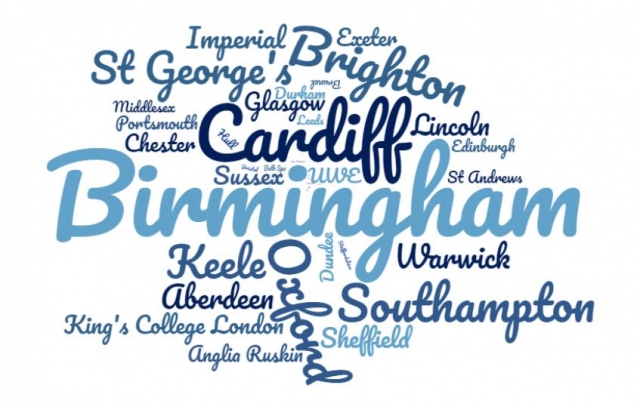Post 16 Biology Survey 2016-17
Initial findings from the post 16 biology survey
The Royal Society of Biology (RSB) is working with its curriculum committee to consider what the future of biology education in schools might look like.
As part of this work we are gathering evidence on the impact of curriculum reforms which includes a survey on post 16 biology education. In England, 2016 was the final year where students have completed the pre-reform A levels.
The survey was aimed at first year undergraduates in biology and asked them to reflect on their experience of biology at school or college, assessing both how prepared for university they felt, and their confidence at undertaking a variety of practical and transferable science skills.
The survey was open during the autumn term from October to the end of November 2016. We will open the survey again during the same period in 2017 so that we can begin to establish if there are any trends and differences between cohorts who have taken different qualifications.
The survey had over 1200 respondents from 39 different universities across the UK. The majority of responses came from students who had been educated within the UK; however there were some additional responses from students who had studied in other countries.

Two thirds of the students surveyed had attended a comprehensive school or a sixth form college in the UK and of the UK students 85% had taken A levels.
The majority of students indicated that they felt confident that their pre university qualifications (A levels, BTECS, Highers) had prepared them for their degree course.
The largest group of respondents were the 2016 A level cohort, and the following feedback focuses on findings from this group:
Aspects of science study
Students were asked to rate their confidence at undertaking different aspects of science study. They were most confident with group and individual work and least confident at structuring lab reports and designing experiments.
Practical experience
We asked students to indicate on a scale of 1-3 where 1= no experience, 2= a little experience and 3= repeated experience, how much experience they had of undertaking different practical activities / related practical experiences at school. From the 2016 cohort there was not much experience (61% had no experience) of maintaining a practical lab book. We expect to see that change next year due to the introduction of the practical endorsement.
Experience using a PCR machine was also unsurprisingly low as many schools do not have access to this equipment. We don't expect this to change! Students had the most experience in using reagents to identify biological compounds and completing plant or animal dissections. 73% of this cohort indicated that they had enjoyed practical activities at school / college - however only 32% found the experience challenging.
Additional comments from the students highlight issues with a lack of equipment to enable them to do practical work and that curriculum time was often squeezed with the focus being on written exam preparation rather than developing a wider range of practical skills.
Topics in biology
Students were also asked to rate their confidence in understanding different topic areas / content within biology. Students rated their confidence in understanding cells, photosynthesis and enzymes more highly than other topics, whereas plant disease and epigenetics came out with the lowest ratings.
We will be interested to see how these change as the content of qualifications change.
Continuing the work
The above are some of the high level findings from the survey. We intend to release the survey to first year undergraduates again in the 2017 autumn term and gather more data. This will allow us to look for trends in the data and begin to monitor the impact of some of the changes that have taken place through curriculum reforms.


